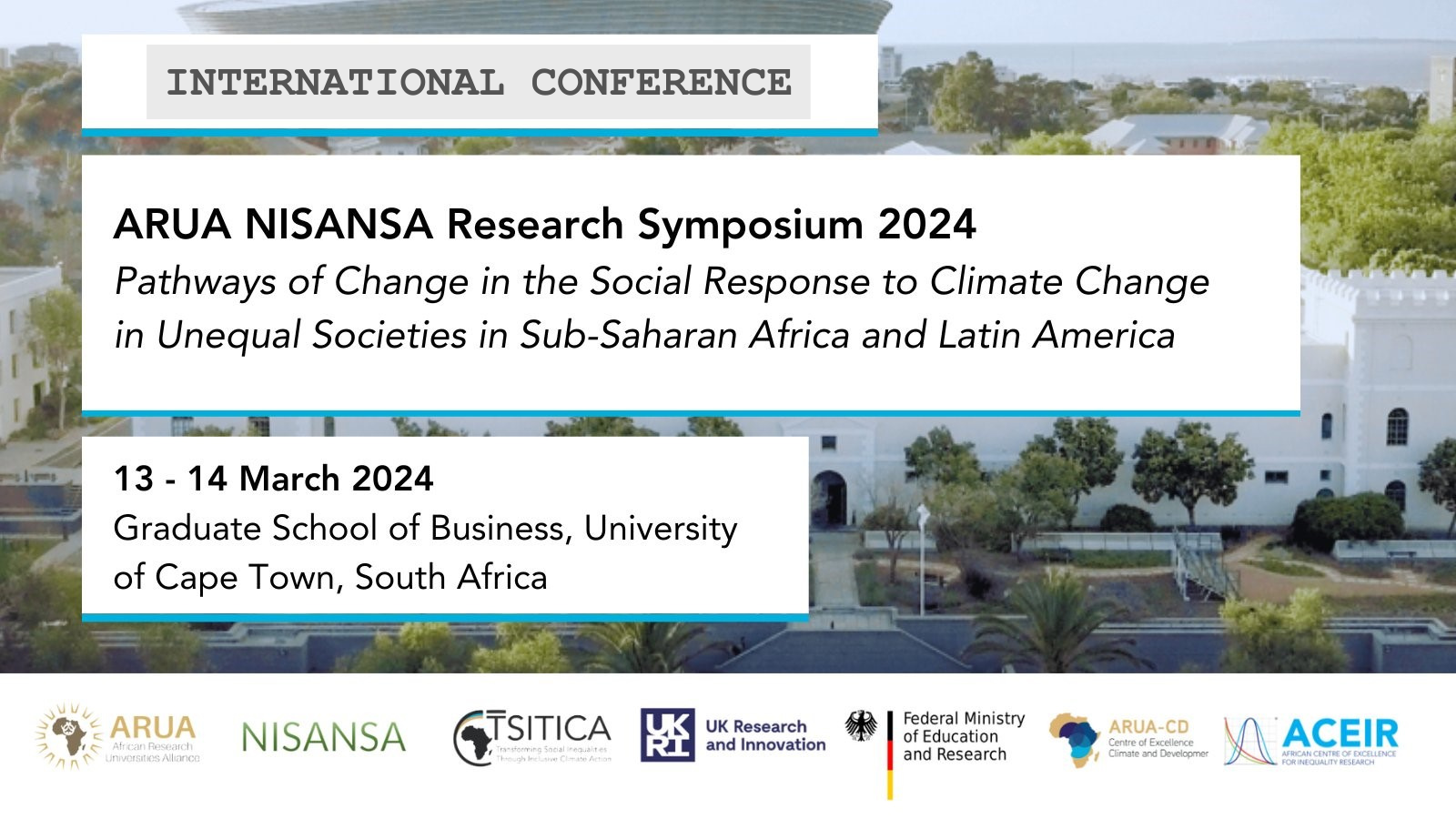Conference | Pathways of change in the social response to climate change in unequal societies

Photo: JMK via Wiki Commons

Photo: JMK via Wiki Commons

This transdisciplinary forum aims to advance the understanding of pathways of change in social responses to climate change, with a special focus on societies in sub-Saharan Africa and Latin America. These two regions are not only highly vulnerable to the impacts of climate change but are also home to some of the most multidimensionally unequal countries on the globe.
Social responses to climate change are as diverse as the two regions themselves. Yet they share elements of innovation that can provide a better understanding of transformative change in climate-resilient development pathways.
The concept of pathways will guide the two days of engagement between participants from academia, and the public and private sectors with a strong focus on the building blocks of innovation, transformation, and positive change.
It is an in-person event at the University of Cape Town’s Graduate Business School, South Africa, with some sessions to be streamed online.
The conference is a collaboration between NISANSA – a joint project by the University of Marburg and University of Gießen; the African Research Universities Alliance, and TSITICA – a joint project of the African Centre of Excellence for Inequality Research and the ARUA Centre of Excellence in Climate and Development.
NISANSA investigates the climate change impacts on societies of the Global South (southern Africa and northern South America), which potentials exist to react to such impacts, and the implications of these for the global North, Europe, and Germany. The Transforming Social Inequalities Through Inclusive Climate Action (TSITICA) project investigates how climate change action can be socially transformative in three contrasting African countries: Ghana, Kenya and South Africa.